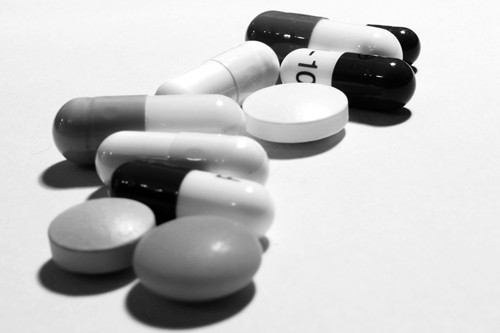21 August 2015. Medicaid is expected to save nearly $3 billion by the year 2019 from patents expiring on leading branded antipsychotic drugs, and as generic forms of those drugs replace them. Researchers from University of Maryland medical school in Baltimore made those calculations in a paper published last month in the journal Psychiatric Services (paid subscription required).
Psychiatry professor Eric Slade, an economist who studies mental health services, and pharmacy professor Linda Simoni-Wastila conducted the study. Slade and Simoni-Wastila sought to gauge the impact on costs to Medicaid as patents for a number of second-generation antipsychotic drugs expire. Second-generation antipsychotic drugs include treatments for common conditions like schizophrenia and bipolar disorder and have fewer side effects than earlier so-called first-generation drugs.
But with reduced side effects come higher costs, and the authors note between 1999 and 2005, annual antipsychotic drug expenditures per Medicaid beneficiary more than doubled. By 2009, antipsychotic drugs made up almost 15 percent of all medication spending for Medicaid. However, patents for nearly all second-generation anti-psychotic drugs — including aripiprazole, asenapine, clozapine, iloperidone, lurasidone, olanzapine, paliperidone, quetiapine, and ziprasidone — either expired in recent years or are expected to expire soon.
Slade and Simoni-Wastila drew their data from a database of Medicaid state-level drug utilization, focusing on outpatient prescriptions for antipsychotic drugs between 2008 and 2011. They tabulated annual numbers of prescriptions, spending, and cost per prescription for each antipsychotic drug.
The researchers looked particularly at risperidone, prescribed for schizophrenia and bipolar disorder, an early second-generation antipsychotic drug that became a generic in 2008. Using pricing and spending changes for risperidone over the period, the researchers generated expenditure models for the other second-generation medications approaching patent expiration.
Applying their models, Slade and Simoni-Wastila found costs for antipsychotic drugs are expected to drop by 49 percent by 2016, a decrease of about $1.8 billion, compared to 2011. Extending the projections to 2019, antipsychotic drug costs are expected to decrease by $2.8 billion, a drop of 77 percent compared to 2011. The researchers say expected changes in Medicaid enrollment, such as from states expanding their rolls under the Affordable Care Act, are expected to have only a limited impact on expenditure trends.
Because of their high costs, use of second-generation antipsychotic drugs drew extra scrutiny and restrictions by Medicaid authorities, such as requiring prior authorization before writing a prescription and limits on the total number of prescriptions filled per month. Because of the expected reduction in spending, say the authors, “warrants a reassessment of the continued necessity of formulary restrictions for second-generation antipsychotics in Medicaid.”
Read more:
- Genetic Test Found to Save Drug Expense, Boost Adherence
- Cancer Specialists Offer Plan to Reduce Drug Prices
- Drug Abusers, Smokers More Likely to Use Opioids Long-Term
- Uninsured Patients Paying Far More for Cancer Drugs
- White House Economist: Lower Health Costs Benefit Economy
* * *


 RSS - Posts
RSS - Posts
You must be logged in to post a comment.